The Risky Politics of France’s Hung Parliament
In the days since the New Popular Front won the largest number of seats, political gravity has again exerted itself.

Paris was in a state of jubilation on July 7. Quite literally, a roar of collective joy could be heard from the rooftops of the French capital when at 8 pm the left-wing Nouveau Front populaire (NFP, New Popular Front) was revealed to have won the largest number of seats in the National Assembly, defying expectations of an imminent majority for Marine Le Pen’s Rassemblement National (RN, National Rally) in the lower house of parliament. At one New Popular Front watch party, a friend joked that this was perhaps our May 10, 1981: the day the socialist François Mitterrand was elected to the presidency, ending 23 years of conservative rule under the Fifth Republic.
In the days since, however, the pull of political gravity has re-exerted itself. If a dissolution of parliament would deliver political “clarity,” as French President Emmanuel Macron has argued for much of the last month, the result was anything but. Divided between three acrimonious blocs, the new National Assembly points above all to a period of extended instability and institutional paralysis. No force is strong enough to govern the country by itself, with the combined forces of a hypothetical opposition able to bring down whatever government emerges through a vote of no confidence.
For now, at least, the far-right RN has been kept at distance from actual governing power. The NFP, formed in the days after the surprise June 9 dissolution, allowed France’s left-wing parties to run a united campaign and magnify a broad platform for democratic reform. Finishing second in the June 30 first-round vote, the left’s alliance proved the leading competitor to the RN. And in a resurrection of the so-called “republican front,” over 200 centrist and left-wing candidates withdrew before the July 7 runoff in order to block the far-right ticket. Le Pen’s party therefore saw its seat share sink to third place. The RN and an allied faction of the old center-right Républicains will send 144 representatives to the new parliament, behind the second-place Macronist coalition Ensemble, at 168 MPs, and the NFP’s 182 deputies. Two hundred and eighty-nine votes are needed for an absolute majority.
As the leading bloc in the National Assembly, leaders of the NFP are claiming victory and demanding the right to form a minority government. Their common platform includes new taxation, investments in public services, an increase in the minimum wage, and a recognition of Palestinian statehood. Since Sunday, they have been racing to overcome tactical and personnel disagreements in a marathon of shuttle negotiations. But the alliance has yet to put forward a nominee for prime minister. The largest force in the alliance, La France Insoumise (LFI, France Unbowed), the party founded by veteran left-winger Jean-Luc Mélenchon, claims that any head of government must be from its ranks. This is brushing up against the NFP’s other forces, who are pushing for a consensus figure who could be less divisive beyond the alliance. Allusions to working within a national unity government alongside Macronists seem contained for now, however, with Socialist Party General Secretary Olivier Faure blocking moves that would unsettle the alliance from its right wing.
Mélenchon has demanded that Macron admit defeat and “bow down” to the NFP, while allied union leaders evoke the possibility of strikes and labor actions to increase the pressure on the president. But an outright left-wing government would be extremely weak—forced to spar in a parliament whose balance of power remains largely conservative. There’s one crucial point of agreement between Macronists and the forces to their right: Any left-wing government, and specifically one with ministers from La France Insoumise, would be welcomed with an immediate vote of no confidence. For the left, maintaining unity in a turbulent situation like this will be a priority in and of itself. Perhaps the best that can be expected is for the alliance to make a credible case for government, affirming that the NFP wants and intends to apply its program for “rupture.”
For now, the forces arrayed against them could be too strong. Since July 7, Macron has tried to nip in the bud any talk of left-wing government. Although parliamentary custom would have him turn to the largest group in the National Assembly for the selection of a prime minister and cabinet, the left’s lack of an absolute majority means that the president is not constitutionally bound to hand the keys of government to the NFP.
Macron has rejected incumbent Prime Minister Gabriel Attal’s resignation. Biding his time, the president has chosen to wait until the parliamentary allegiances have settled; in the new legislature’s first session on July 17, the body is scheduled to elect its presiding leadership. Others suggest that the president could delay to beyond the Olympic Games or even to after the habitual August recess, which will in any case see intense negotiating.
“Nobody won this,” Macron wrote in a July 10 open letter, his first public statement since the runoff. “No single force alone holds a sufficient majority, and the blocs or coalitions that emerged in this election are all in the minority.” The president’s stated goal is to stitch together some sort of national unity government, a “plural” majority that would hypothetically bring together elements of the old center-left Parti Socialiste and the Républicains. “Only the republican forces represent an absolute majority,” Macron continued—implicitly drawing the line at the left-wing LFI and the RN.
If NFP unity holds, Macron’s bloc will likely be tugged toward building a more durable alliance with the center-right opposition. Having tacitly supported Macron’s minority government in the last legislature, the Républicains occupy an awkward middle ground between the RN and the presidential coalition. They were already essential in blocking no-confidence votes between 2022 and 2024, when Macron’s minority government was forced to strong-arm the National Assembly through special constitutional previsions to override the lower house, most notably with the forced adoption of a two-year increase in the retirement age in spring 2023.
But the Républicains remain hesitant to join an outright coalition, with leaders in the alliance evoking a less committed “legislative pact.” Those who’ve remained in the party—spurning the defections toward either Le Pen or the Macronists—are betting that an eventual crackup of the president’s coalition will leave them positioned to regain political centrality.
An alliance with the right could also alienate a wing of Macron’s coalition. A faction of the president’s caucus already revolted this past winter over the adoption of an immigration law thanks to votes of the RN, which Le Pen labeled an “ideological victory” of the far right. They are now, led by Macron’s old ally Sacha Houlié, building a progressive caucus at arm’s length from the main line of the president’s force. Even if this faction would likely never vote to sink a unity government, an alliance between the Macronists and the Républicains would still barely clear 200 votes. It would be at pains to survive without a modicum of at least passive support from beyond its ranks, whether from the NFP or the RN.
The lowest common denominator could therefore be some sort of managerial government to steady the ship, leaning on powers in the Constitution that facilitate the adoption of texts without a vote, notably for the budget. Some bemoan the absence of a culture of compromise, pointing to Italy or Germany as a counterexample. Yet the fact remains that governing with this parliament is something of a grenade. There’s just a strong incentive to not get involved, pin the blame on others, and prepare for the next hand.
Paralysis could have France in election mode for much of the next year. Macron cannot dissolve the National Assembly until June 2025, which some already consider an inevitability given the instability of any possible governing coalition.
The Rassemblement National is already preparing for that eventuality, it seems, having fired the party official tasked with drafting its “Matignon Plan,” the road map for these last snap elections. In its electoral postmortem, the party is mainly pointing to a poor screening of candidates from the local party level. This is said to have allowed unsavory candidates—from anti-vaxxers to patent racists—to slip through the cracks and undermine the façade of a disciplined governing force cultivated by Le Pen and Jordan Bardella, the RN’s presumptive nominee for prime minister and the party’s official president.
Popular
“swipe left below to view more authors”Swipe →Despite these missteps, the RN ultimately did pull off a surge in seats in parliament, adding some 40 to the 88 it held in the outgoing legislature. Moreover, the RN knows that its imminent victory was blocked by last-minute electoral maneuvering: Over 10.5 million French voters sided with a Le Pen candidate in the June 30 first round, making it the largest party in terms of popular electoral support.
Those pushing for a governing pact with the center right therefore argue that a conservative alliance would answer the law-and-order and anti-immigration demands driving Le Pen’s rise, and better reflect the broad right-wing consensus they see in the electorate. But concessions have done little to impede the trajectory of the Rassemblement National: There were eight Le Pen deputies elected in 2017, 88 in 2022, and now there are 144, if you add Le Pen’s new allies. How many in 2025?
More from The Nation
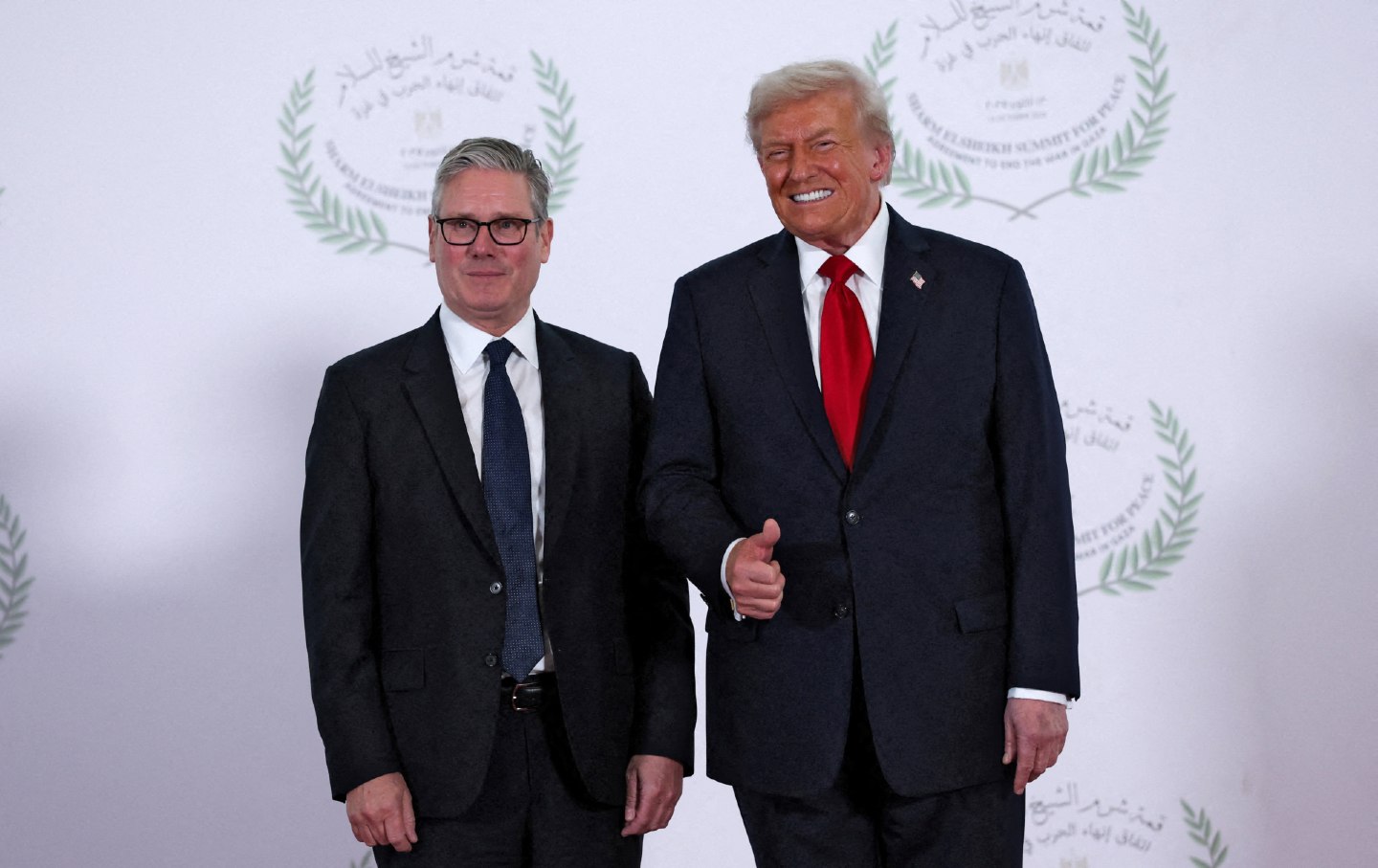
Europe Signs Up for More Humiliation by Trump Europe Signs Up for More Humiliation by Trump
As the post–Cold War order cracks up, the fault lines don’t just run through the Atlantic, but Europe itself.
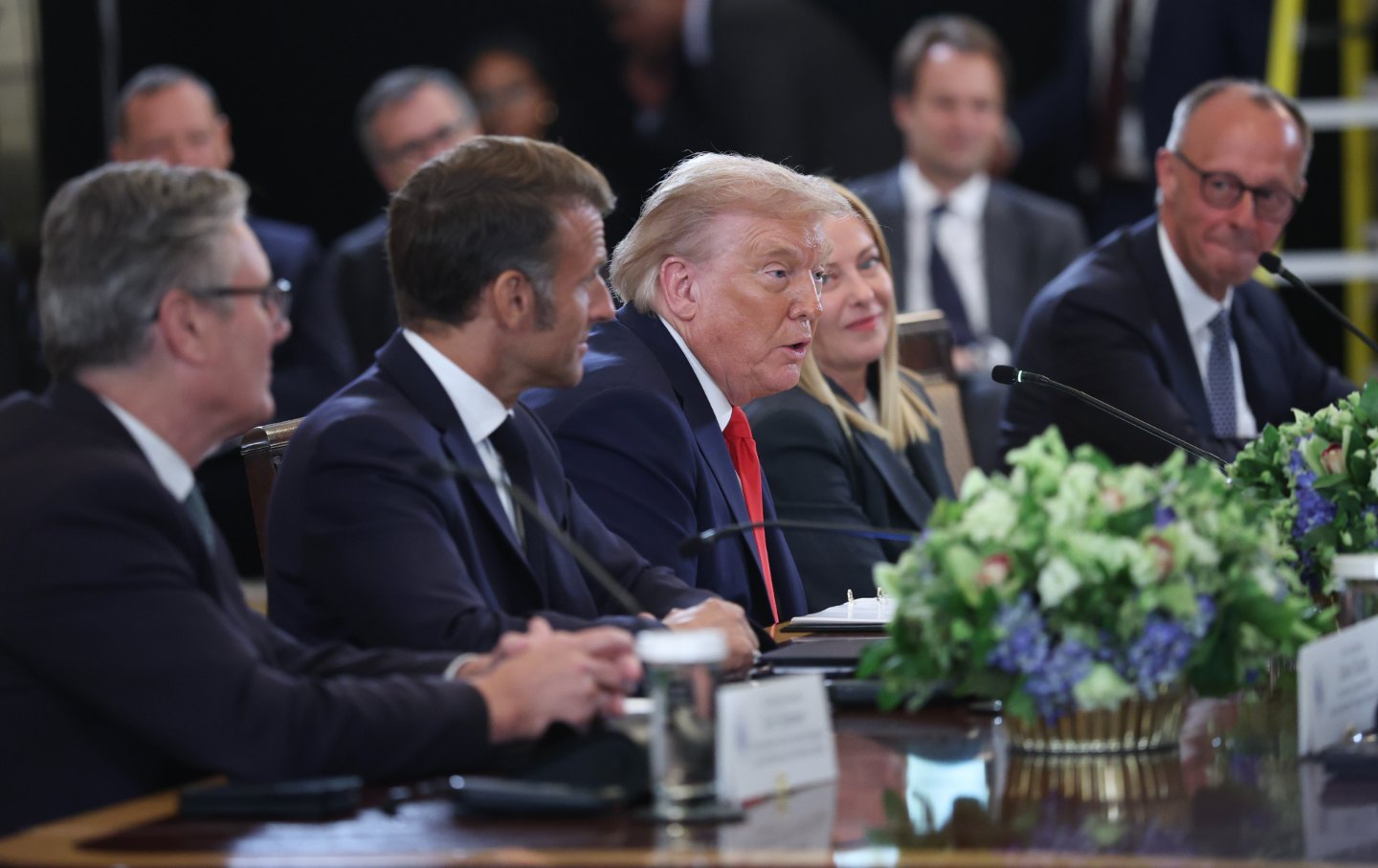
European Cowardice Is Empowering Trump’s New Imperialism European Cowardice Is Empowering Trump’s New Imperialism
NATO allies don’t want to confront Trump’s aggression. But they may ultimately not have a choice.
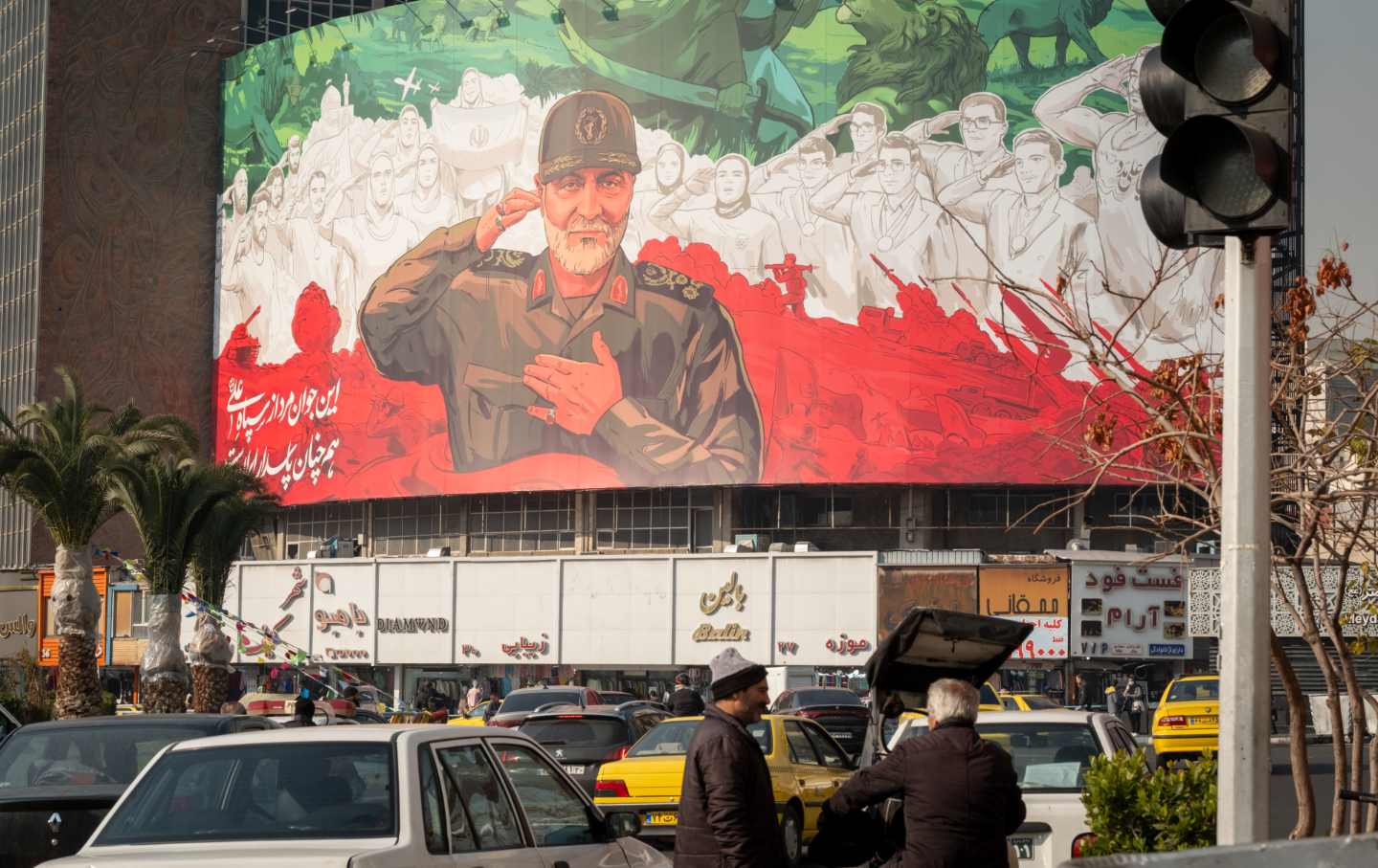
The Assassination That Paved the Way for Trump’s Venezuela Attack The Assassination That Paved the Way for Trump’s Venezuela Attack
How Trump’s illegal 2020 killing of Qassem Soleimani—and the West’s indifferent response—laid the groundwork for the brazen abduction of Nicolás Maduro.
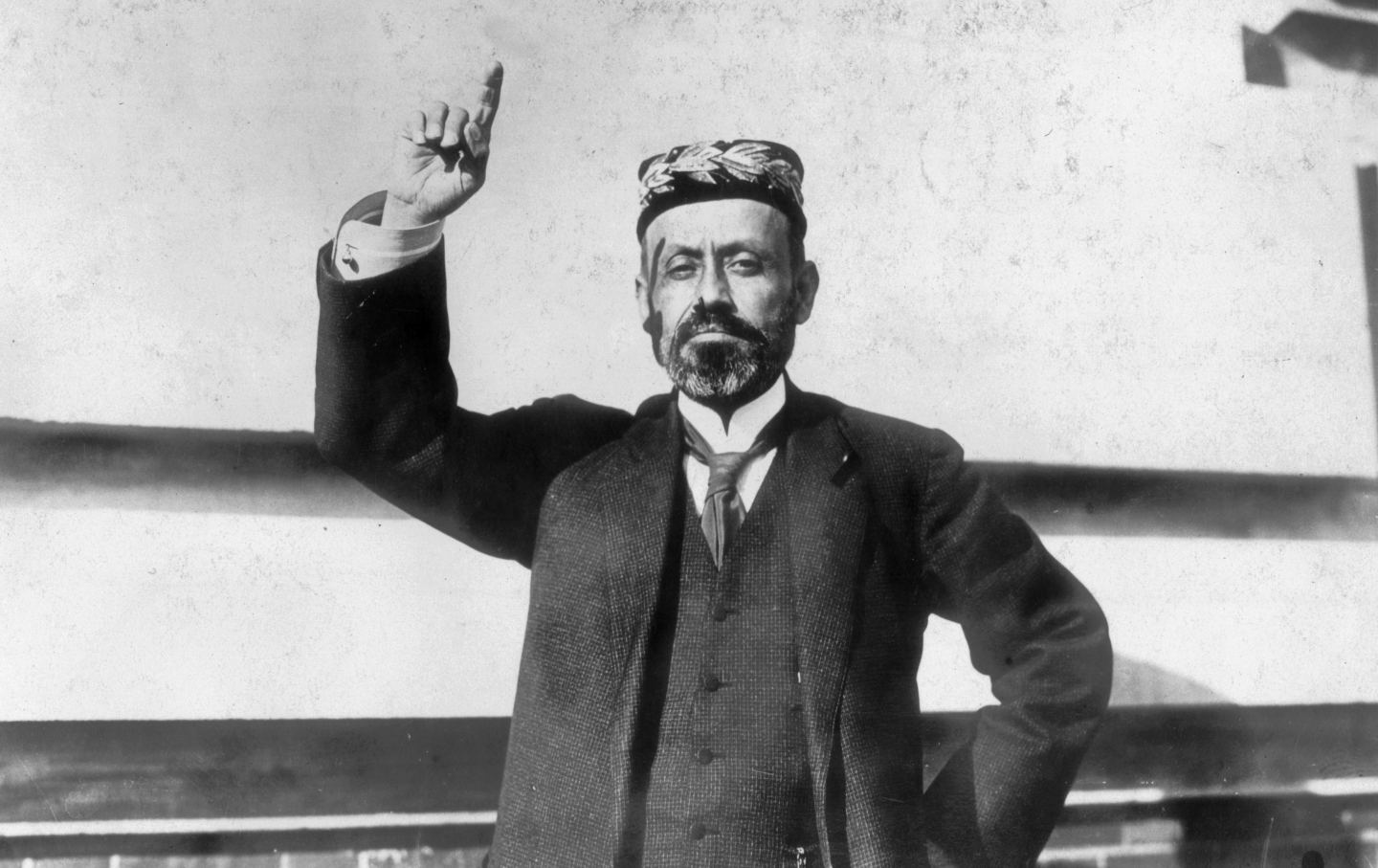
Before There Was Nicolás Maduro, There Was Cipriano Castro Before There Was Nicolás Maduro, There Was Cipriano Castro
Behind today’s headlines is a history of imperial outrage—including a Philadelphia contract man who wreaked havoc in early-20th-century Venezuela and helped oust a president.
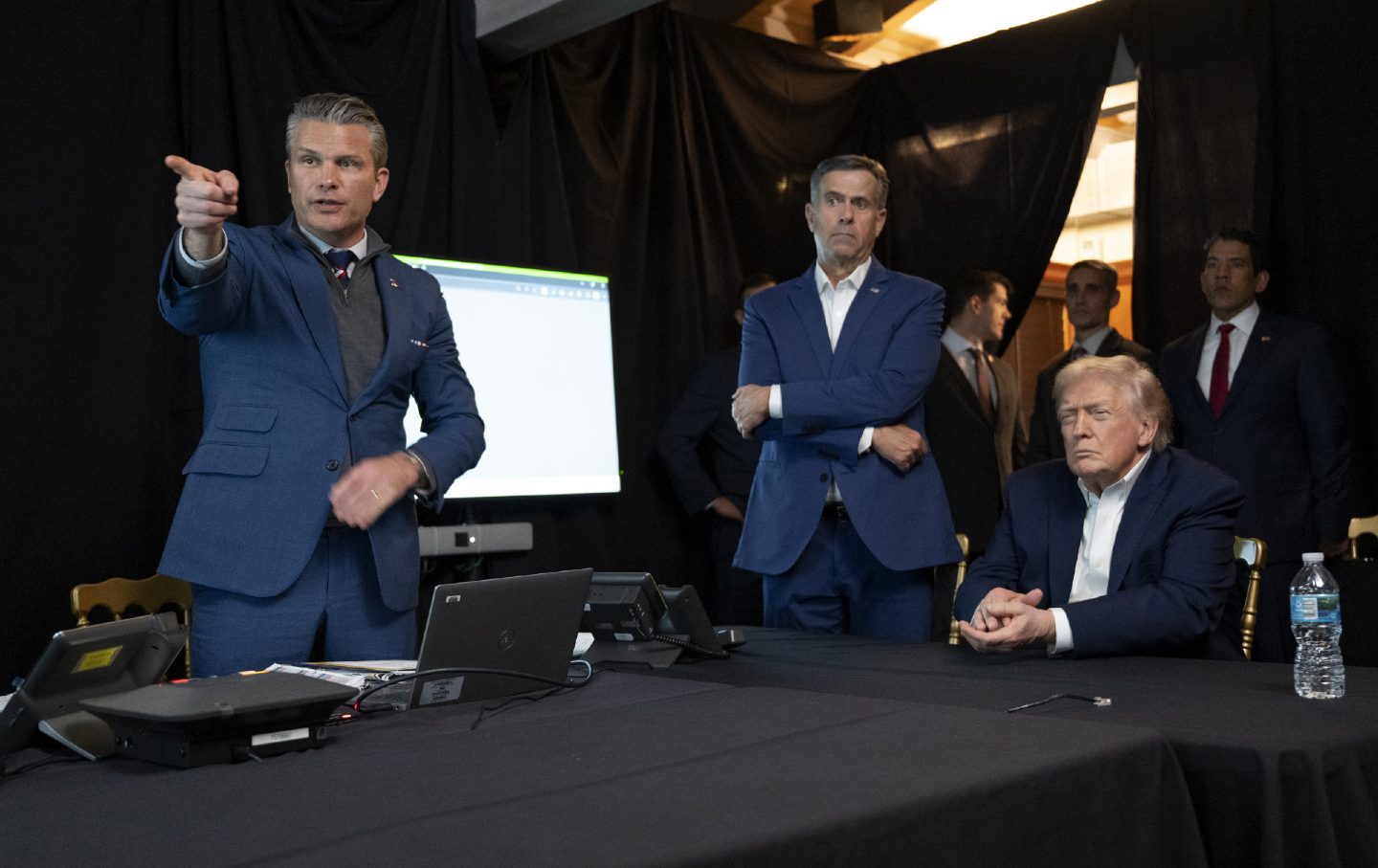
The US Is a Rogue State That Deserves to Be Sanctioned The US Is a Rogue State That Deserves to Be Sanctioned
Where is the international outrage over the US assault on Venezuela and kidnapping of Maduro?



